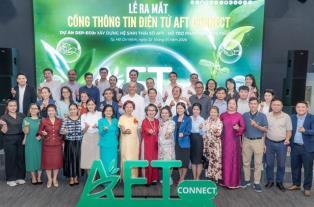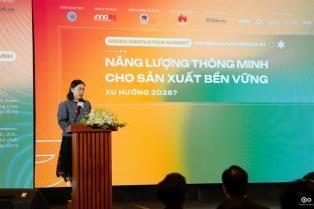As international economic integration deepens, Vietnamese enterprises must further enhance their competitiveness to participate more effectively in global supply chains.

HÀ NỘI — As international economic integration deepens, Vietnamese enterprises must further enhance their competitiveness to participate more effectively in global supply chains.
This message was emphasised by experts at a workshop on improving business competitiveness held on November 27 in Hà Nội by the Centre for Supporting Small and Medium Enterprises under the Vietnam Chamber of Commerce and Industry (VCCI).
This year marks a new phase of Việt Nam’s international economic integration with participation in many new generation free trade agreements such as the CPTPP, EVFTA, and RCEP, creating opportunities for broader access to large, high-quality markets.
At the same time, global supply chains are undergoing major shifts. New trends are opening doors for Việt Nam to attract investment, expand production, and embed itself more deeply in regional and global networks, such as production diversification, geopolitical-driven supply chain restructuring, and the prioritisation of green and sustainable logistics.
However, these opportunities come with substantial challenges. Vietnamese businesses face rising competitive pressure from regional peers and must meet increasingly strict technical standards, quality requirements, and sustainability criteria.
Many Vietnamese enterprises continue to struggle with limited technological capacity, low labour productivity, and insufficient ability to satisfy large-scale or long-term orders.
The supporting industry's firms, considered the foundation of any robust supply chain, often lack connectivity, in-depth investment, and high-quality human resources.
Speaking at the workshop, Trần Thị Thanh Tâm, director of the Centre for Supporting Small and Medium Enterprises, noted that VCCI has been implementing a range of initiatives to support businesses.
One such initiative is a project aimed at improving capacity and strengthening linkages among supporting industry enterprises to foster Việt Nam’s industrial ecosystem.
As part of this project, the workshop provided updates on global integration trends and supply chain shifts, shared practical solutions to enhance enterprise competitiveness, especially for manufacturers and supporting industry's firms, and highlighted the growing importance of international standardisation and certification.
It also created a chance for businesses to exchange experiences, connect with partners, and explore collaboration opportunities.
According to Dr. Trịnh Quốc Vinh, from Vietnam Institute of Strategy and Policy for Industry and Trade (Ministry of Industry and Trade), global supply chain restructuring is accelerating, forcing countries to rethink their approaches.
Key trends include diversification of production locations to emerging destinations such as Việt Nam and India to reduce concentration risks. Resilience is being strengthened through investments in backup systems, flexible warehousing, and diversified transportation networks.
Green supply chains are also becoming an unavoidable requirement, compelling businesses to cut emissions, use renewable energy, and comply with strict labour and sustainability standards.
Meanwhile, digital integration is essential for ensuring transparency and operational efficiency, particularly through real-time data connectivity in transportation and warehousing.
These developments are creating urgent demand for human resources with digital competencies, data-management skills, and modern green-thinking capabilities.
The ongoing shifts bring significant opportunities for Việt Nam to attract high-quality investment, develop its logistics industry, and boost national competitiveness.
However, the country also faces substantial challenges, including exchange rate pressures, a shortage of highly skilled workers meeting international requirements, and increasing global demands for green compliance.
So, Vinh said Việt Nam should proactively build value chains and shift its competitive advantage from low costs to core ability. Economic integration must go hand in hand with structural reforms, digital transformation, and effective management of supply chain risks.
He also stressed the importance of aligning economic integration with national defence and security, focusing on science, technology, and innovation to move up the value chain, and building autonomy in data and standards. — VNS





